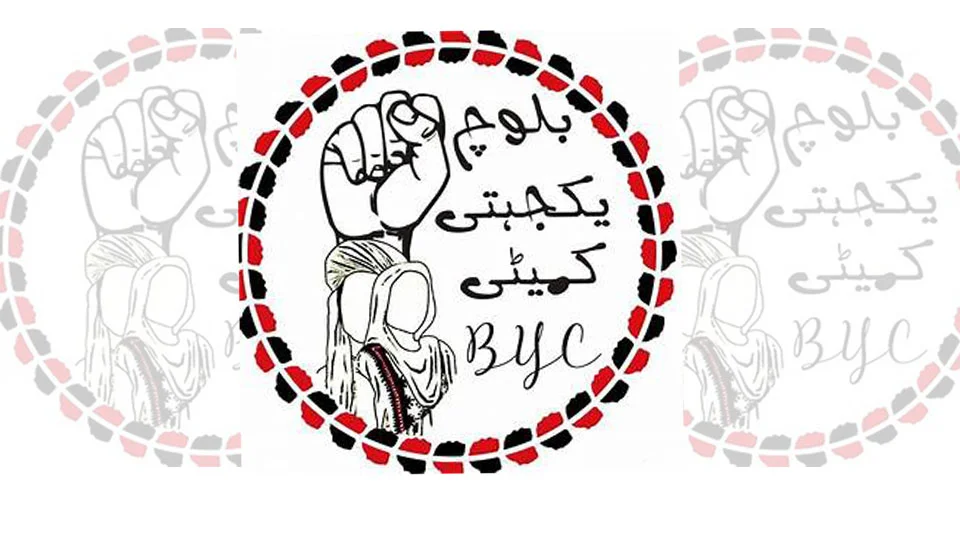Six activists from the Baloch Yakjehti Committee (BYC), including Deputy Organizer Lala Wahab Baloch, have reportedly disappeared after being taken into police custody during a protest in Karachi, according to BYC organizer Dr. Mahrang Baloch.
The activists were detained during a peaceful protest outside the Karachi Press Club, which was organized to highlight the growing number of enforced disappearances in Karachi and Balochistan.
According to the BYC, the protesters were held at Artillery Maidan Police Station without formal charges or any First Information Report (FIR) being filed against them.
In a post on X, Dr. Mahrang Baloch expressed concern over the activists’ disappearance after their arrest. “They were subjected to violence in front of the Karachi Press Club and held in custody all day without any formal charges. Now, they have disappeared from the police station,” she wrote.
The BYC said that the families of the arrested individuals were able to meet them at 6 PM, but by 8 PM, access was denied, and their whereabouts remain unknown. The group fears that the activists have been forcibly disappeared.
“Their relatives were told that an FIR had been lodged against them, but the police are refusing to present it. Since 8 PM, no one has been allowed to meet them,” read the BYC’s statement. “It seems they have been forcibly disappeared, putting their lives in danger.”
The BYC warned that the Sindh police and the state would bear full responsibility for the activists’ safety.
Crackdown on Protest Against Enforced Disappearances
The Baloch Yakjehti Committee had organized the protest in response to the alarming rise in enforced disappearances in Balochistan and Karachi. The group claims that approximately 60 people have gone missing in October alone.
Earlier in the day, the protest outside the Karachi Press Club was met with a heavy police crackdown. Police officers used force to disperse the demonstrators, leading to multiple arrests, including that of Lala Wahab Baloch and several other BYC activists.
Condemnation from Karachi Press Club
The Karachi Press Club condemned the actions of the Sindh police, particularly the closure of roads leading to its premises during the protest.
“The denial of the right to protest for the oppressed is unacceptable; the government must take immediate notice,” the Karachi Press Club officials demanded.
In an official statement, President Saeed Sarbazi and Secretary Shoaib Ahmed, along with the governing body of the Press Club, denounced the police’s actions, calling them an assault on democratic principles and freedom of expression. They also warned that blocking access to the Press Club under the pretext of Section 144 was unacceptable.
“The Press Club has a proud history since 1958 of fostering freedom of the press and democracy while serving as a voice for the oppressed and marginalized,” said Sarbazi. “We strongly condemn any attempts to block access to the Press Club.”
The Press Club urged the Governor of Sindh and the Chief Minister to take immediate action and warned that if these practices continue, they reserve the right to protest against such measures.
Dr. Mahrang Baloch’s Strong Criticism of PPP and Police
In a separate post on X, Dr. Mahrang Baloch strongly condemned the Pakistan People’s Party (PPP) and its Sindh government, accusing them of facilitating the state’s ongoing campaign of repression against the Baloch people.
“The Pakistan People’s Party has always acted as the state’s frontman to oppress the Baloch people. The violence inflicted on Baloch mothers, sisters, and elders outside the Karachi Press Club today is a continuation of that oppression,” she wrote.
Dr. Baloch described the violence against the protesters, particularly the elderly leader Lala Wahab Baloch, as a grave assault on their dignity. “The violence against our elder leader, the disrespect shown to his traditional Balochi cap, and his disappearance after arrest are grave assaults on our dignity. Pulling off the shawls of our women and violating their sanctity is an open aggression against Baloch traditions and values.”
She called for unity and resilience among the Baloch people, urging them to transform their suffering into a force for resistance. “This oppression is not meant to break us but to teach us to stand even stronger for our rights. We will not remain silent, we will not bow down, we will fight, and we will claim our rights.”

